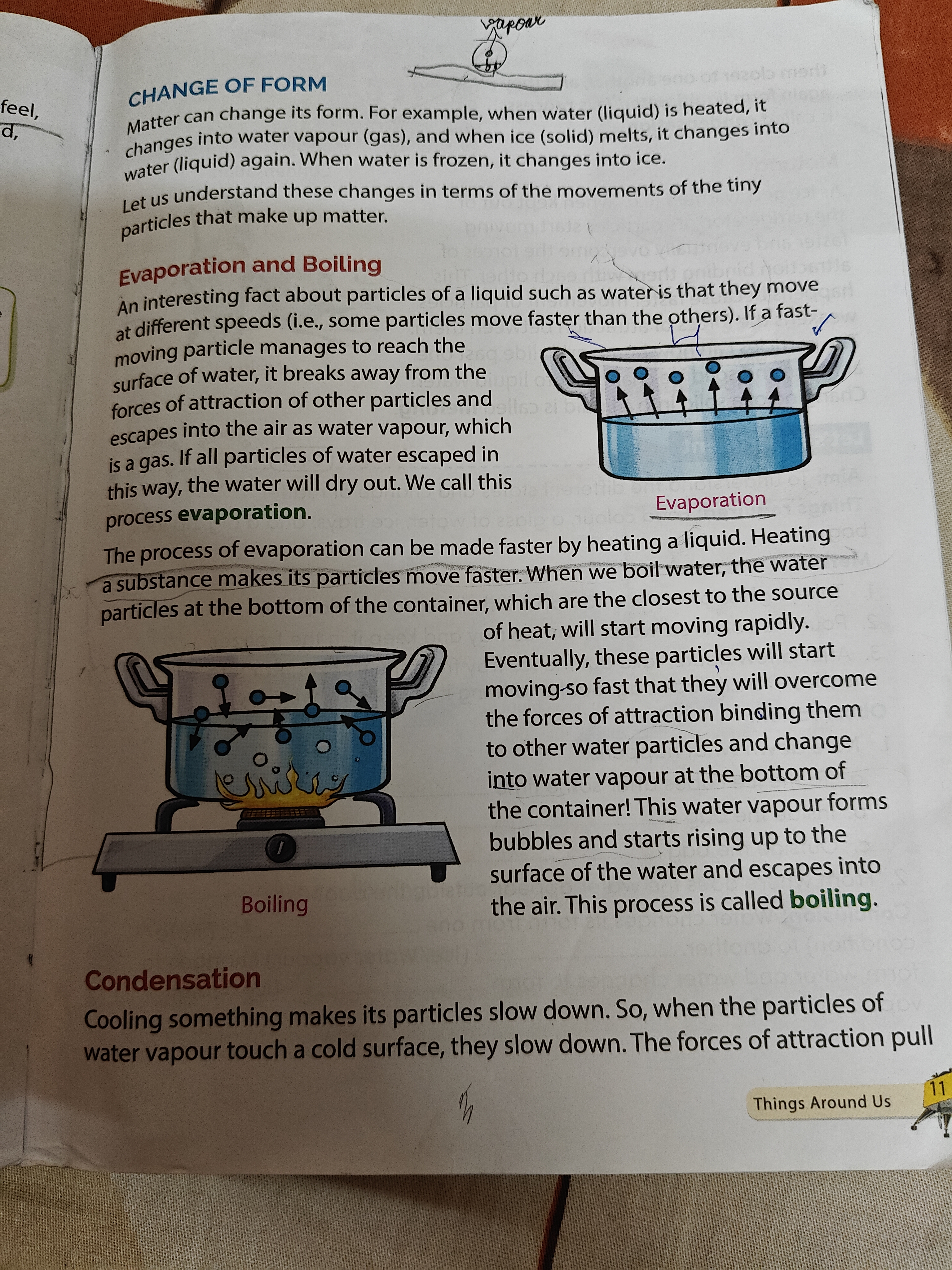What are the processes of evaporation and boiling, and how do they relate to particle movement in liquids?

Understand the Problem
The question is discussing the concepts of evaporation and boiling, explaining how heat affects the movement of particles in a liquid, leading to phase changes. The focus is on understanding these processes in terms of particle movement.
Answer
Evaporation occurs at the surface of a liquid below its boiling point, while boiling happens when the liquid reaches its boiling point.
Evaporation is the process where molecules escape from a liquid's surface to become a gas without reaching the boiling point. Boiling involves the entire liquid reaching a specific temperature (boiling point), causing rapid formation of vapor bubbles within the liquid.
Answer for screen readers
Evaporation is the process where molecules escape from a liquid's surface to become a gas without reaching the boiling point. Boiling involves the entire liquid reaching a specific temperature (boiling point), causing rapid formation of vapor bubbles within the liquid.
More Information
Evaporation can occur at any temperature but is faster at higher temperatures. Boiling always occurs at a specific temperature known as the boiling point.
Tips
A common mistake is thinking that evaporation occurs only near boiling point. It can happen at any temperature.
Sources
- The Process of Evaporation - National Geographic Society - nationalgeographic.org
- Differences Between Evaporation and Boiling in Chemistry - toppr.com
- What is the physical process in which molecules of a liquid break ... - quora.com